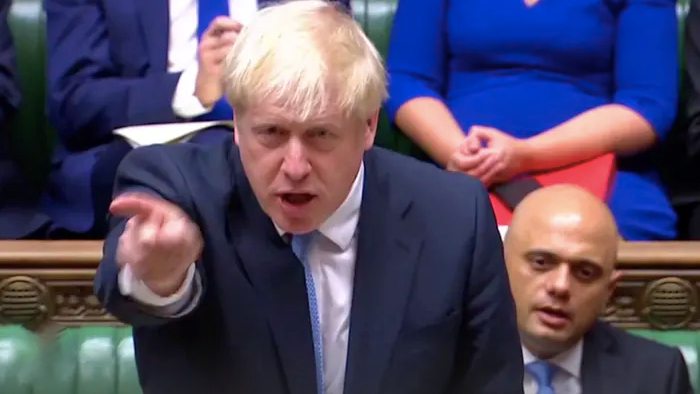

As we go to press, the Punch and Judy show of Boris Johnson’s Brexit negotiations is moving into its final act with exchanges of a “Oh yes we will! – Oh no you won’t” type flying between London and Brussels.
Certainly on neither side is this real negotiation: just an attempt to shift the blame for the inevitable breakdown.
Michel Barnier and the EU team, plus Irish premier Leo Varadkar, have made it perfectly clear that none of Johnson’s fanciful rewrites of the backstop will work. The “offer” of a partial exemption of the Six Counties from a full exit from the customs union, but under a DUP veto, was clearly more an insult than an offer.
Mysterious ‘sources’ in Number Ten have been issuing communiqués through The Spectator that negotiations are about to break down and that Johnson and Dominic Cummings, will find a some sort of legal chicanery to get round the Hilary Benn Act requiring the prime minister to ask the EU a for a delay. Instead they will try to trigger a general election. The ‘source’ says:
“To marginalise the Brexit Party, we will have to fight the election on the basis of ‘no more delays, get Brexit done immediately… We’ll either leave with no deal on 31 October or there will be an election and then we will leave with no deal… So the main effect of it will probably be to help us win an election by uniting the leave vote and then a no deal Brexit.”
This is Cummings’ ‘cunning plan’. We must see if the parliamentary majority against No Deal has an equally cunning plan of their own. Somehow we doubt it.
Cummings and his master are doubtlessly encouraged by the soaring lead the unspeakable Blimp is getting in the opinion polls. The latest Opinium survey, conducted on the 3 and 4 October, puts the Conservatives on 38 percent with Labour languishing on 23 percent of the vote.
The poll suggests that Johnson has got the support of 60 percent of Leave voters whereas Labour has 39 percent of Remainers, with the Lib-Dems on 30 percent.
The problem those who oppose Brexit because it is a reactionary move to disrupt our links with our fellow workers in the EU, that will intensify racism, and throw the remnants of the welfare state on the mercy of Donald Trump and his ‘marvelous’ trade deal, is that Johnson has been far more successful in uniting the Leave Camp behind him and marginalising Nigel Farage, than anyone has on the Remain side.
Jeremy Corbyn has paralysed Labour in the middle of the road as yet another, albeit ‘softer’, Brexit party. This is a position most of its members intensely dislike but once again were too loyal to him to stop it in Brighton. This prevents Labour winning votes from the Lib-Dems, the nationalists, and the Greens. It will discourage the youthful activists who Momentum rallied to Labour in 2017.
Meanwhile the Liberal Democrats are impertinently refusing to consider backing Corbyn as prime minister of an interim government to postpone the Brexit date and hold a referendum. This does not bode well for Labour (or the Corbyn leadership’s survival) in any early general election.
With the present balance of forces and with Brexit as number one, two, and three issue in a snap election, those who think Jeremy Corbyn can just “play a blinder” with radical domestic policies, as he did in 2017, are living in a fantasy.
By playing the game exclusively in parliament and the law courts – by smothering any clear message as to what Brexit will mean, the Labour leadership has dealt itself a losing hand.
The only escape from this mess is to shift the balance of class forces on the streets. The hopefully huge Peoples Vote demonstration on 19 October could begin to do so but only if Labour and the trade unions throw off their diplomatic abstention from the struggle and come forward as advocates of staying in the EU, yes – but staying to fight.
French workers are even now fighting Emanuel Macron’s neoliberal reforms with strikes and mass demonstrations (see page 14). They are not just our allies but our class sisters and brothers. We need to fight together fight against the EU’s neoliberal rulers and treaties, that crucified Greece with austerity and privatisation and begin the revolutionary struggle for a socialist Europe.